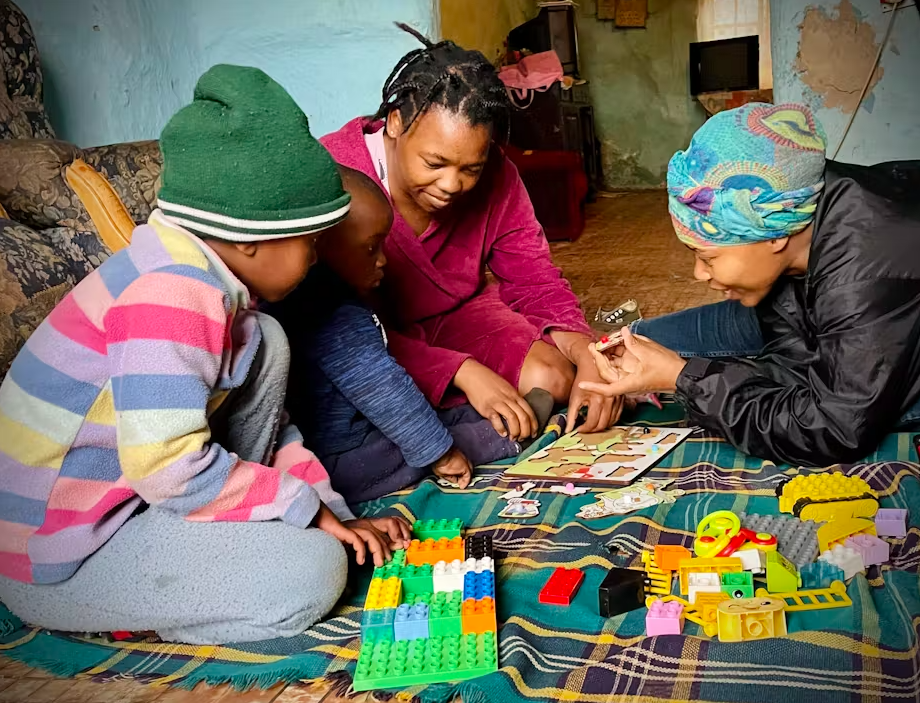In the heart of Sweetwaters, near Pietermaritzburg, South Africa, a dedicated group of women embarks on a daily trek armed with bags full of toys and books. These women serve as home mentors, supporting families enrolled in an early childhood development initiative. Their mission? To foster learning and growth through interactive activities, swapping stories, puzzles, and engaging both children and their caregivers. Even older siblings are enticed to join in, captivated by games and storytelling.
Unicef data reveals that an estimated 40% of South African homes lack children's books. Seeking to rectify the situation, 20 years ago a group founded a nonprofit organization - called iThemba Projects - in partnership with the Sweetwaters community to bridge educational gaps and provide essential mentorship opportunities for local families.
Core to iThemba's intervention is the belief in the transformative power of parental engagement. By encouraging parents to read, play, and converse with their infants or school-aged children iThemba seeks to cultivate hope in a community struggling with various formidable challenges, from high HIV infection rates to pervasive unemployment and limited access to early education.
The organization's approach aligns with established research in developmental psychology, highlighting the enduring impact of early childhood interactions. Notably, iThemba's efforts revealed that parents who have hopes of a brighter future for their children were more willing to invest time in reading and play.
According to the research conducted by the organization, among the key factors influencing parental engagement are:
-
How long they have been in the programme
-
If they have friends or support they could depend on
-
How optimistic they are about their children’s future
iThemba’s approach is unique because it focuses on building lasting relationships and providing ongoing support to caregivers, rather than simply giving them information. This method has led to real changes in the Sweetwaters community, with parents gradually adopting and valuing activities that help children grow and learn.
The changes in parenting are gradual but lasting. Over time, parents have developed a routine of reading and playing with their kids, understanding more and more how crucial these activities are for their children’s growth. While many programs in developing countries offer only short-term help, lasting family progress is often seen if there is longer-term support, usually after six months to a year of regular sessions.

Picture: Both children and parents benefit from daily play and reading activities (iThemba Projects)


